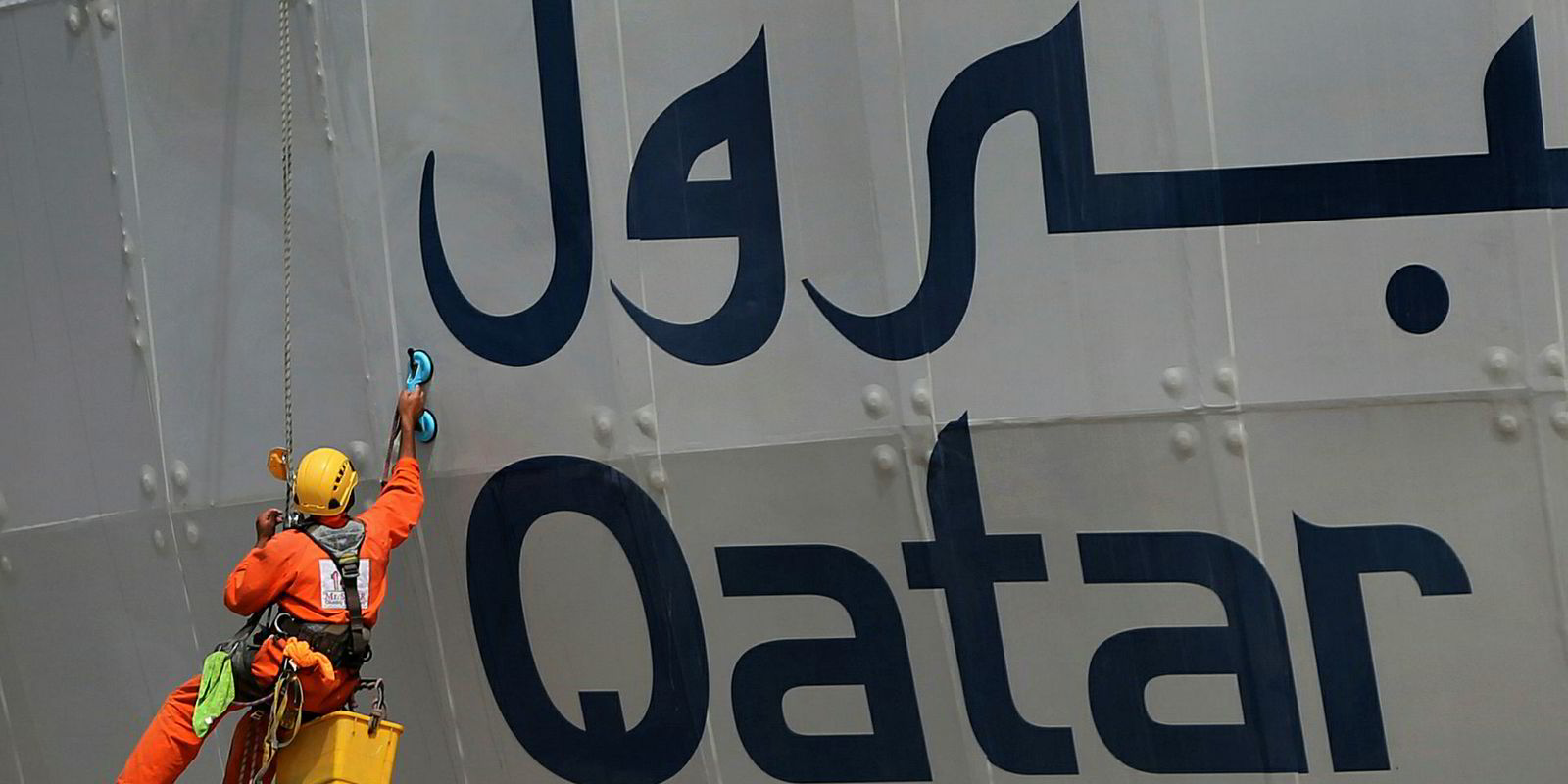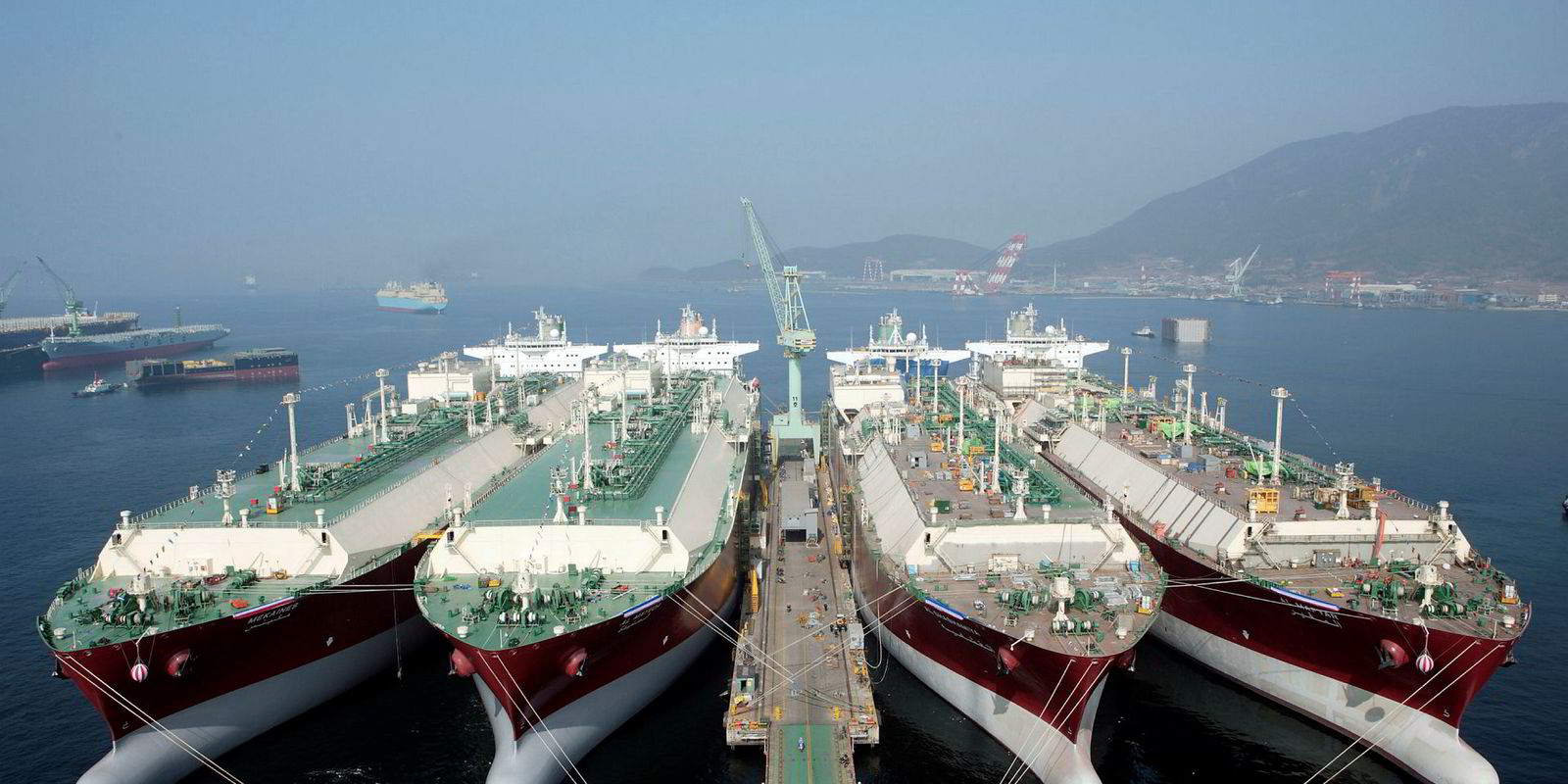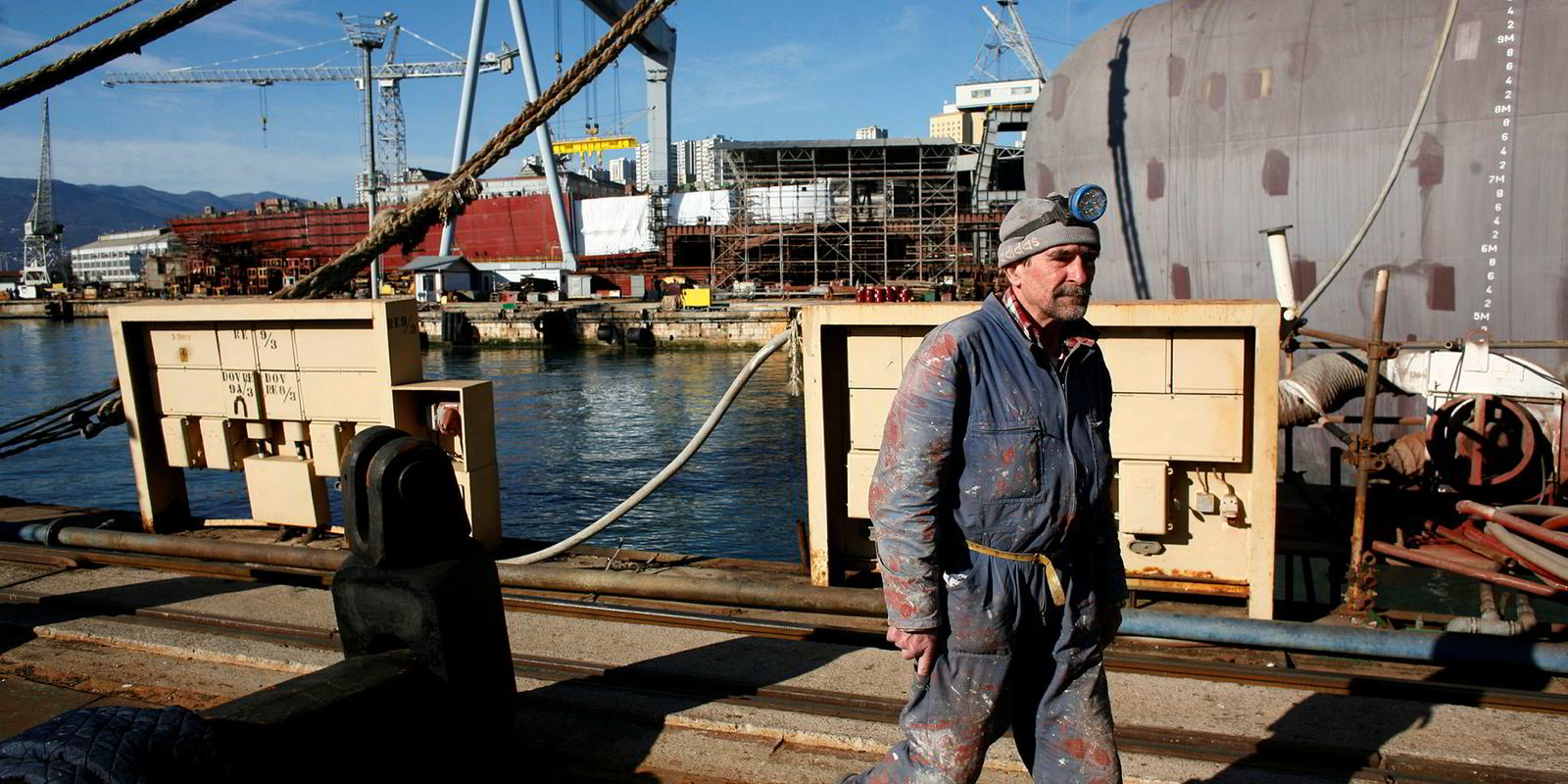Qatar is a small country offering a big prize. The prospect of the Gulf state ordering up to 100 vessels has been dangled before hungry shipowners and shipyards for months.
Now that prospect is a reality, with Qatar Petroleum issuing them with a formal invitation to tender for a slice of the business.
In the first instance, the company is looking for 60 LNG carriers but says the final number could “exceed 100”. Some of the planned new vessels will replace vessels in the existing Qatari fleet but others are needed for expansion.
Thrills and spills
Massive orders can thrill some and cause chaos to others. Remember the 111-ship order by Sanko Steamship of Japan in the 1980s?
The shipowner later went into bankruptcy (twice). Amazingly, Sanko is still around, although with a tiny fleet of three bulkers.
Qatar Petroleum is not another Sanko. For one it is government owned and, secondly, this company and country is awash with cash.
In fact, Qatar is the richest country in the world on a per capita basis and all its wealth comes from resources that need to be shipped.
So why the massive tender for LNG carriers, which would total up to $15bn?
Gas is a growing market. Global volumes are expected to rise by 11% in 2019 alone as countries around the world seek greener alternatives to coal to run power stations.
Qatar left Opec at the turn of the year partly to symbolise its new determination to concentrate on gas
Qatar is currently fighting to keep its position as the world’s top LNG exporter in the face of a determined challenge from Australia. It is facing this battle at a time when it is being forced to rely on its own initiative and resources.
Regional dispute
Qatar continues to face a two-year-old economic embargo imposed by neighbouring Gulf states and Saudi Arabia that have accused it of helping to ferment terrorism in the region, something Qatar strongly denies.
But the order is not just a commercial decision, it is a political one. Qatar left Opec at the turn of the year partly to symbolise its new determination to concentrate on gas.
Shipping the commodity as well as producing it, is all part of a national ambition.
The Gulf state previously built 45 Q-Flex and Q-Max LNG carriers that are chartered by Qatargas, a subsidiary of Qatar Petroleum.
There is now talk of these vessels being switched from heavy fuel oil to LNG by the state-owned company that operates them, Nakilat.
And Qatar’s LNG shipping requirements and commercial interests extend beyond the Arabian Gulf.
The country is a 70:30 partner with ExxonMobil in Ocean Partners, a business that has a contract to take supplies from the Golden Pass LNG project in Texas from 2024.
One of the markets for the new gas will be China, which is rapidly expanding its imports
Qatar and ExxonMobil agreed in February to proceed with the $10bn-plus Golden Pass project at Sabine Pass, which will eventually produce 16 million tonnes per annum of gas.
Global ambitions
Qatar and ExxonMobil agreed in February to proceed with the $10bn-plus Golden Pass project at Sabine Pass, which will eventually produce 16 million tonnes per annum of gas.
A tender has also just gone out to build four new huge LNG production trains to enable expansion of the North Field.
This is the largest gas field in the world and sits across the offshore median line between Qatar and Iran. The Iranian side of the field is known as South Pars and the combined reservoir holds 1,800 trillion cubic feet of reserves.
Gas has been exported from there since 1997, but it was only in 2017 when Qatar decided to press ahead with a new phase that will increase the country’s production capacity from 77 mtpa to 110 mtpa from 2024.
Energy consultancy Wood Mackenzie says this new gas should be highly competitive as development costs in the industry are low currently and the North Field is relatively cheap to expand.
One of the markets for the new gas will be China, which is rapidly expanding its imports, especially from the Gulf state.
Fillip for shipping
The vessels needed to serve this expansion have long excited the global shipbuilding sector hit by a slump in overall business due to recession.
Shipbroker Clarksons revealed earlier this month that shipyard contracts overall are at a 15-year low, forcing some out of business.
But gas has been a major bright spot with almost 70 new vessels contracted in 2018. LNG carriers are particularly welcome to yards as they are higher specification and higher priced.
The gas carrier order rush has continued in the first three months of 2019, and securing part of Qatar’s latest mega-order would be the icing on the cake





